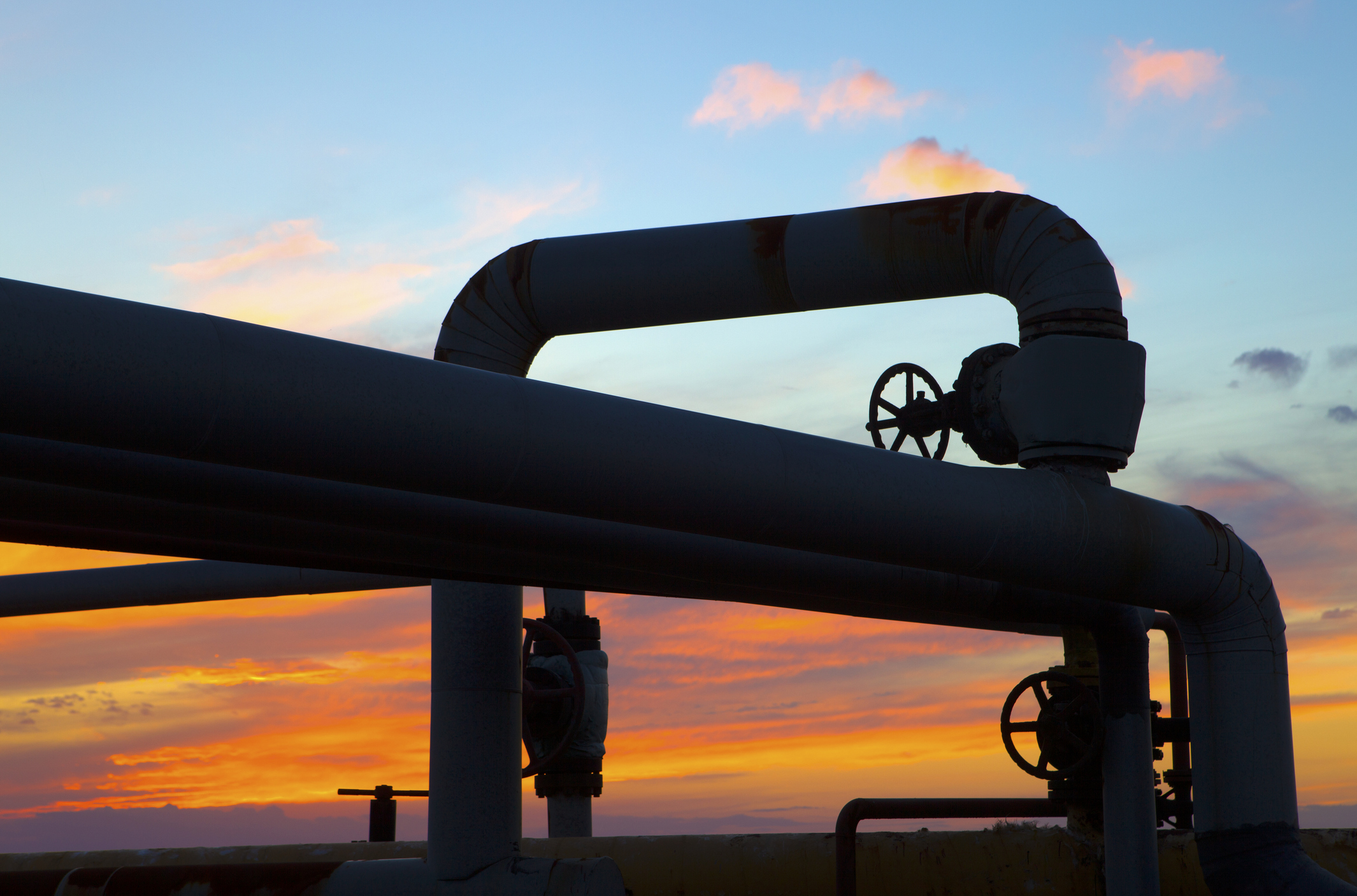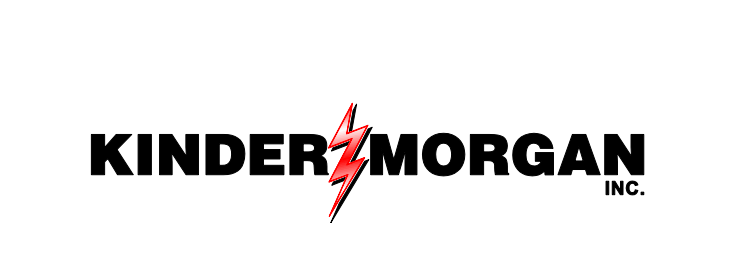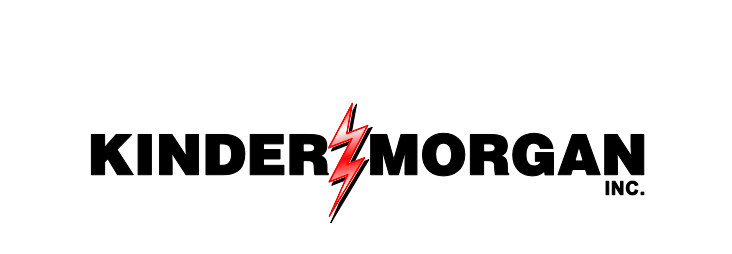Kinder Morgan Edges Past Revenue Estimates, Reaffirms 2025 Guidance Despite EPS Miss

Kinder Morgan (NYSE:KMI) turned in a mixed performance for the first quarter, with revenue outpacing Wall Street expectations while earnings landed just shy of forecasts. The company also reaffirmed its full-year outlook, signaling steady operational momentum ahead. Currently, shares are up more than 2% intra-day.
The pipeline operator reported adjusted earnings of $0.34 per share for the quarter, narrowly missing the consensus projection of $0.35. Meanwhile, revenue rose to $4.24 billion, topping the anticipated $4.08 billion.
Performance in the natural gas pipelines segment stood out, supported by stronger returns from the Texas Intrastate system and Tennessee Gas Pipeline. Transport volumes for natural gas climbed 3% year-over-year, helped by higher demand from LNG exports and power generation.
Looking ahead, Kinder Morgan maintained its 2025 guidance. The company continues to forecast adjusted earnings per share of $1.27—just under the $1.28 market estimate. It plans to raise its annual dividend to $1.17 per share, a modest 2% increase over 2024. Adjusted EBITDA is expected to grow 4% year-over-year to $8.3 billion, reflecting continued investment in its infrastructure network.
| Symbol | Price | %chg |
|---|---|---|
| TRNFP.ME | 1218.2 | -0.72 |
| TGNO4.BA | 2063 | 0.1 |
| ET-PE | 81.4286 | 0 |
| ENB.TO | 68.36 | 0.19 |

Kinder Morgan Reiterates Guidance as Project Backlog Grows, Posts Mixed Q2 Results
Kinder Morgan (NYSE:KMI) reported mixed second-quarter results on Wednesday, keeping its full-year earnings guidance steady while highlighting growth in its project pipeline.
The pipeline operator posted adjusted earnings of $0.28 per share, matching analyst estimates. Revenue came in at $4.04 billion, narrowly beating expectations of $3.75 billion.
One of the quarter’s bright spots was Kinder Morgan’s project backlog, which grew by $1.3 billion from the previous quarter as new projects were added. The expansion underscores the company’s continued focus on long-term infrastructure growth despite a challenging market environment.
For the full year, Kinder Morgan reaffirmed its earnings guidance at $1.27 per share, slightly below the $1.28 consensus forecast. The company also announced a 2% increase in its quarterly dividend to $0.2925 per share, payable on August 15, reinforcing its commitment to returning capital to shareholders.

Kinder Morgan, Inc. (NYSE:KMI) Sees Rising Analyst Optimism Amidst Strong Operations and Strategic Initiatives
- The consensus price target for Kinder Morgan, Inc. (NYSE:KMI) has increased from $26.82 to $34, reflecting growing analyst confidence.
- Kinder Morgan's diversified operations and fee-based revenue model provide a stable revenue base, with 90% of income insulated from commodity price fluctuations.
- Strategic investments in renewable natural gas and hydrogen, along with a strong project backlog, position Kinder Morgan for steady growth.
Kinder Morgan, Inc. (NYSE:KMI) is a leading energy infrastructure company in North America. It operates in various segments, including natural gas pipelines, products pipelines, terminals, and CO2. The company boasts an extensive network of approximately 83,000 miles of pipelines and 143 terminals, making it a significant player in the energy sector.
Over the past year, the consensus price target for KMI has increased from $26.82 to $34, indicating growing optimism among analysts. This rise suggests confidence in Kinder Morgan's ability to perform well in the future. Despite Morgan Stanley's lower price target of $20, the overall sentiment remains positive.
Kinder Morgan's operational stability is a key factor in this optimism. The company's diversified operations and extensive infrastructure provide a stable revenue base. Its fee-based revenue model, with 90% of income decoupled from commodity price fluctuations, ensures reliable cash flow, as highlighted by Zacks.
Energy market dynamics also play a role in shaping analysts' expectations. Robust gas prices and increased throughput have contributed to a positive earnings outlook for Kinder Morgan. The company is anticipated to surpass expectations in its second-quarter earnings report, as noted by Zacks.
Strategic initiatives further influence the consensus price target. Kinder Morgan's investments in renewable natural gas and hydrogen, along with a strong project backlog, position it for steady growth. Additionally, potential opportunities from US-EU trade talks could enhance its strategic role in LNG diplomacy, as highlighted by Seeking Alpha.

Kinder Morgan Edges Past Revenue Estimates, Reaffirms 2025 Guidance Despite EPS Miss
Kinder Morgan (NYSE:KMI) turned in a mixed performance for the first quarter, with revenue outpacing Wall Street expectations while earnings landed just shy of forecasts. The company also reaffirmed its full-year outlook, signaling steady operational momentum ahead. Currently, shares are up more than 2% intra-day.
The pipeline operator reported adjusted earnings of $0.34 per share for the quarter, narrowly missing the consensus projection of $0.35. Meanwhile, revenue rose to $4.24 billion, topping the anticipated $4.08 billion.
Performance in the natural gas pipelines segment stood out, supported by stronger returns from the Texas Intrastate system and Tennessee Gas Pipeline. Transport volumes for natural gas climbed 3% year-over-year, helped by higher demand from LNG exports and power generation.
Looking ahead, Kinder Morgan maintained its 2025 guidance. The company continues to forecast adjusted earnings per share of $1.27—just under the $1.28 market estimate. It plans to raise its annual dividend to $1.17 per share, a modest 2% increase over 2024. Adjusted EBITDA is expected to grow 4% year-over-year to $8.3 billion, reflecting continued investment in its infrastructure network.

Kinder Morgan, Inc. (NYSE:KMI) Maintains Strong Position in Energy Sector
- Wells Fargo maintains an "Overweight" rating for Kinder Morgan, Inc. (NYSE:KMI), raising its price target from $30 to $33.
- Consistent dividend growth with an 8-year streak, offering a 3.74% annual yield, making it attractive to income-focused investors.
- $3 billion stock buyback program initiated to enhance shareholder value, alongside robust fourth-quarter earnings for 2024.
Kinder Morgan, Inc. (NYSE:KMI) is a leading energy infrastructure company in North America. It operates pipelines and terminals that transport natural gas, crude oil, and other products. The company competes with other energy giants like Enbridge and Williams Companies. On January 24, 2025, Wells Fargo maintained its "Overweight" rating for KMI, with the stock priced at $30.48. Wells Fargo also raised its price target from $30 to $33.
KMI is considered a strong buy for long-term investors seeking capital appreciation and income. The company has a solid foundation, supported by strong fundamentals and strategic initiatives. It has an impressive 8-year streak of increasing dividends, currently offering a 3.74% annual yield. This consistent dividend growth is attractive to income-focused investors.
To further enhance shareholder value, Kinder Morgan has initiated a $3 billion stock buyback program. Stock buybacks can increase the value of remaining shares by reducing the total number of shares outstanding. This move, along with robust fourth-quarter earnings for 2024, supports the company's growth prospects.
Kinder Morgan's strategic project pipeline is another factor contributing to its future growth. The company is well-positioned to benefit from the favorable political climate under the new Trump administration, as highlighted by the company's strategic initiatives. This environment may provide opportunities for expansion and development in the energy sector.
Currently, KMI's stock price on the NYSE is $30.48, with a daily fluctuation between $30.35 and $30.555. Over the past year, the stock has seen a high of $31.48 and a low of $16.47. With a market capitalization of approximately $67.7 billion and a trading volume of 1,346,157 shares, KMI remains a significant player in the energy infrastructure industry.

Kinder Morgan, Inc. (NYSE:KMI) Maintains Strong Position in Energy Sector
- Wells Fargo maintains an "Overweight" rating for Kinder Morgan, Inc. (NYSE:KMI), raising its price target from $30 to $33.
- Consistent dividend growth with an 8-year streak, offering a 3.74% annual yield, making it attractive to income-focused investors.
- $3 billion stock buyback program initiated to enhance shareholder value, alongside robust fourth-quarter earnings for 2024.
Kinder Morgan, Inc. (NYSE:KMI) is a leading energy infrastructure company in North America. It operates pipelines and terminals that transport natural gas, crude oil, and other products. The company competes with other energy giants like Enbridge and Williams Companies. On January 24, 2025, Wells Fargo maintained its "Overweight" rating for KMI, with the stock priced at $30.48. Wells Fargo also raised its price target from $30 to $33.
KMI is considered a strong buy for long-term investors seeking capital appreciation and income. The company has a solid foundation, supported by strong fundamentals and strategic initiatives. It has an impressive 8-year streak of increasing dividends, currently offering a 3.74% annual yield. This consistent dividend growth is attractive to income-focused investors.
To further enhance shareholder value, Kinder Morgan has initiated a $3 billion stock buyback program. Stock buybacks can increase the value of remaining shares by reducing the total number of shares outstanding. This move, along with robust fourth-quarter earnings for 2024, supports the company's growth prospects.
Kinder Morgan's strategic project pipeline is another factor contributing to its future growth. The company is well-positioned to benefit from the favorable political climate under the new Trump administration, as highlighted by the company's strategic initiatives. This environment may provide opportunities for expansion and development in the energy sector.
Currently, KMI's stock price on the NYSE is $30.48, with a daily fluctuation between $30.35 and $30.555. Over the past year, the stock has seen a high of $31.48 and a low of $16.47. With a market capitalization of approximately $67.7 billion and a trading volume of 1,346,157 shares, KMI remains a significant player in the energy infrastructure industry.

Kinder Morgan Posts Q4 Earnings Miss; Eyes Growth with $1.7B Pipeline Project
Kinder Morgan (NYSE:KMI) reported fourth-quarter results that fell short of Wall Street expectations. Despite missing profit and revenue forecasts, the energy infrastructure giant outlined ambitious plans for 2025, including a major pipeline expansion project.
For the quarter, Kinder Morgan posted adjusted earnings of $0.32 per share, coming in below analysts' projections of $0.34. Revenue for the period totaled $3.99 billion, missing the consensus estimate of $4.21 billion.
Looking ahead, the company reaffirmed its 2025 guidance, projecting adjusted earnings per share of $1.27, in line with analyst expectations. Kinder Morgan also anticipates paying $1.17 per share in dividends for the year, signaling continued commitment to shareholder returns.
Kinder Morgan announced a significant new initiative: the $1.7 billion Trident Intrastate Pipeline Project. This 216-mile pipeline, backed by long-term contracts, will enhance natural gas transportation capacity between Katy, Texas, and the industrial and liquefied natural gas (LNG) hubs near Port Arthur, Texas. Once operational, it is expected to transport 1.5 billion cubic feet of natural gas per day, reinforcing the company’s position in key markets.
CEO Kim Dang emphasized the strategic importance of the pipeline, highlighting its potential to meet growing demand in the LNG and industrial sectors along the Texas Gulf Coast.







